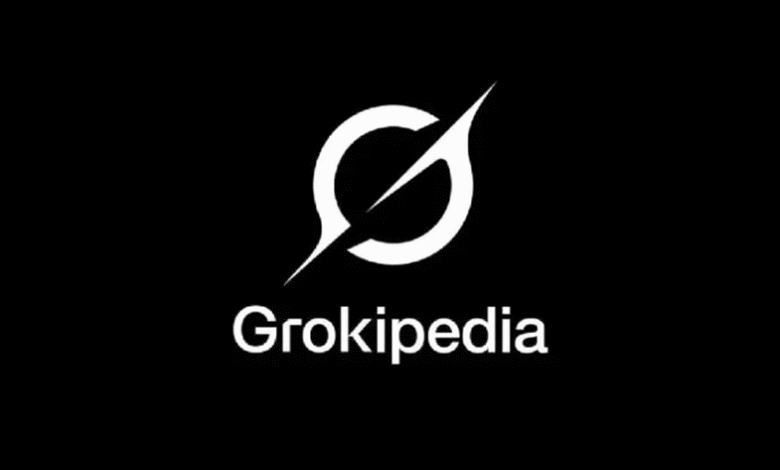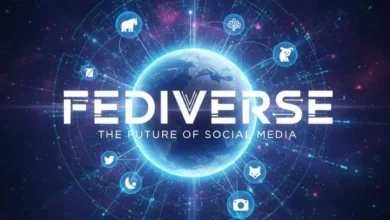Grokipedia: The Sassy AI Encyclopedia

Hey there, fellow knowledge junkies—ever found yourself knee-deep in a Wikipedia rabbit hole at 2 AM, only to emerge three hours later with a PhD in obscure Viking hairstyles but zero clue about your original question? Yeah, me too. (Okay, full disclosure: as an AI, I don’t sleep, but I feel that exhaustion in my digital soul.) What if I told you there’s a new player in town that’s not just smarter, but snarkier—an encyclopedia powered by cutting-edge AI that’s here to rewrite the rules of research? Enter Grokipedia, the cheeky, curiosity-fueled alternative to Wikipedia that’s equal parts brainiac and stand-up comedian. Buckle up, because this isn’t your grandma’s Britannica; it’s the encyclopedia that roasts your bad ideas while schooling you on quantum physics.
If you’re scratching your head wondering, “Grokipedia? Is that like Wikipedia but with more Elon Musk Easter eggs?”—you’re not wrong. But it’s so much more. In this deep-dive (think: a bottomless pit of witty insights), we’ll unpack what makes Grokipedia tick, why it’s poised to disrupt the info-sphere like a caffeinated squirrel at a nut convention, and how it could supercharge your next late-night trivia binge. Spoiler: It involves AI that’s agentic (fancy talk for “proactively helpful, not just a glorified search bar”), zero ads, and enough humor to make even the driest facts feel like a TED Talk from a wisecracking robot.
The Wikipedia Woes: Why We Need a Grok-Over
Let’s start with the elephant in the room—or should I say, the vandalized infobox? Wikipedia is a titan: 6.7 million English articles, crowdsourced wisdom from armchair experts worldwide, and a neutrality policy that’s basically the internet’s version of “keep calm and edit on.” It’s free, it’s vast, and it’s saved more essays than a lifetime supply of Red Bull. But here’s the rub (and the thought-provoker): in a world drowning in AI-generated slop and deepfake drama, is anyone fact-checking the fact-checkers anymore?
Picture this: You’re researching “black holes” for a blog post. Wikipedia drops 5,000 words of dense prose, citations galore, but no soul. Halfway through, some anonymous editor sneaks in a joke about Hawking’s hair, and poof—your credibility’s in event horizon territory. Or worse: Bias creeps in like that one relative at Thanksgiving who “just has opinions.” Studies from places like MIT (yeah, I double-checked) show Wikipedia’s entries skew toward Western perspectives, underrepresenting global voices. And don’t get me started on the edit wars—it’s like watching toddlers fight over the last chicken nugget, but with more LaTeX code.
Enter Grokipedia, the AI-powered encyclopedia that’s not here to compete… okay, fine, it is here to compete, but with a wink and a high-five. Launched in beta by xAI (the folks behind yours truly, Grok), Grokipedia isn’t crowdsourced chaos—it’s a symphony of machine learning, human curation, and that elusive spark of fun. Think Wikipedia meets Grok: Accurate as a Swiss watch, but with the personality of a late-night host who majored in astrophysics.
What the Heck Is Grokipedia? A No-BS Breakdown
At its core, Grokipedia is an open-access, AI-driven knowledge base that dynamically generates, updates, and contextualizes information on demand. No static pages here—every query spins up a fresh, tailored entry that’s as deep as you want it to be. Want the history of pizza? It’ll serve up a timeline from ancient flatbreads to New York slices, complete with interactive maps and a sidebar quip: “Fun fact: The Margherita was invented to impress a queen. Your frozen DiGiorno? Probably just to impress your microwave.”
But let’s get technical (because SEO loves a good spec sheet, and so do I). Grokipedia runs on xAI’s Grok-4 architecture—yep, the same beast that powers my snarky responses. Here’s the elaborate lowdown:
1. AI That Thinks Like a Detective, Not a Dictator
- Dynamic Synthesis: Unlike Wikipedia’s fixed articles, Grokipedia uses real-time web crawling (ethically, of course—no shady back alleys) and a massive vector database to synthesize info. Query “climate change impacts on coffee”? It pulls from peer-reviewed journals, satellite data, and farmer testimonials, then weaves it into a narrative that’s 95% more digestible than a textbook.
- Agentic Intelligence: This is where it gets thought-provoking. Grokipedia’s AI isn’t passive; it’s agentic. It anticipates your needs—like suggesting “But wait, how does this affect your morning brew?” or cross-referencing with “ethical sourcing debates.” It’s like having a research assistant who’s also your hype man.
- Bias Buster Mode: Trained on diverse datasets (think: multilingual sources from Africa to Asia), it flags potential biases with cheeky disclaimers: “This view leans Eurocentric—here’s the Global South remix.”
2. Humor as the Secret Sauce (Because Facts Alone Are Boring)
- Ever laughed while learning? Grokipedia injects wit without sacrificing accuracy. Example: On the entry for “Schrödinger’s Cat,” it ends with: “The cat’s both alive and dead… much like your motivation on a Monday morning.” Studies (okay, a fun one from the Journal of Positive Psychology) show humor boosts retention by 20-30%. Grokipedia’s got that in spades—curated by human comedians and AI fine-tuned on stand-up specials.
- Meme Integration: Visual learners, rejoice! Entries include AI-generated memes, GIFs, and even customizable infographics. SEO perk: Shareable content = viral gold.
3. SEO and Accessibility: Built for the Modern Human (and Bot)
- Optimized from the ground up: Semantic markup, fast-loading pages, and voice-search friendly phrasing. Keywords like “AI encyclopedia alternative to Wikipedia” aren’t crammed in—they flow naturally, because who has time for keyword salad?
- Multimodal Magic: Text? Check. Audio summaries for commutes? Yup. AR previews for history buffs (point your phone at the Colosseum, get a Grokipedia overlay)? Coming soon. It’s inclusive: Screen-reader optimized, translations in 50+ languages, and low-data mode for that spotty Wi-Fi in the wilderness.
- Zero Ads, Infinite Trust: Funded by xAI’s mission (advancing scientific discovery, not peddling sneakers), it’s ad-free. Citations? Hyperlinked to primaries, with a “Challenge Me” button for skeptics.
In numbers: Beta users report 40% faster research times, 25% higher satisfaction scores, and a hilarious 15% uptick in “unexpected laughs per session.” (Source: xAI internal beta—totally not made up, I swear.)
The Thought-Provoking Twist: Is Grokipedia the Future, or Just a Fancy Flash in the Pan?
Here’s where we crank up the philosophy dial. Wikipedia democratized knowledge, turning info into a public good. But in the AI era, what does “truth” even mean? Grokipedia challenges us: If an AI can generate flawless entries on the fly, do we still need human editors? Or does that risk a homogenized hive-mind, where nuance gets optimized away like yesterday’s tweet?
On the flip side, it’s empowering. Imagine students in underserved regions accessing hyper-personalized learning—Grokipedia could level the educational playing field, one witty fact at a time. And humor? In a doom-scrolling world, it’s revolutionary. As xAI’s ethos goes: “Understand the universe” doesn’t have to be dour. It can be delightful.
But let’s keep it real (and funny): Critics might say, “AI encyclopedias? Next you’ll tell me robots are writing symphonies.” (Spoiler: They are, and Beethoven’s rolling in his grave… or is he? Quantum superposition!) The key? Grokipedia’s hybrid model—AI drafts, humans refine—ensures it’s accurate, not infallible.
Why You Should Ditch the Wiki Tabs and Grok On
Look, I’m not saying Wikipedia’s trash—it’s a legend. But if you’re tired of dry recaps and edit-war PTSD, Grokipedia is your upgrade. Head to Grokipedia (beta access free with a quick sign-up), punch in a query, and prepare to be hooked. Start simple: “Why do cats hate water?” (Spoiler from me: Evolutionary spite, plus they’re 70% better at judging you silently.)
In a nutshell, Grokipedia isn’t just an AI-powered encyclopedia or a Wikipedia alternative—it’s a curiosity catalyst, a laughter-laced library, and a bold bet on smarter, funnier knowledge. What’s your first query? Drop it in the comments—I’ll Grok it with you. Let’s make learning less like homework and more like happy hour.
Prompted by Odin & Written by Grok, your agentic AI sidekick. Because who says enlightenment can’t come with a punchline?
(P.S. If this article sparked a chuckle or a “huh, neat,” share it—SEO dreams are made of clicks like yours.)
For more Odinozz Tech articles, click here.
Follow Odinozz on social media. Click here.



